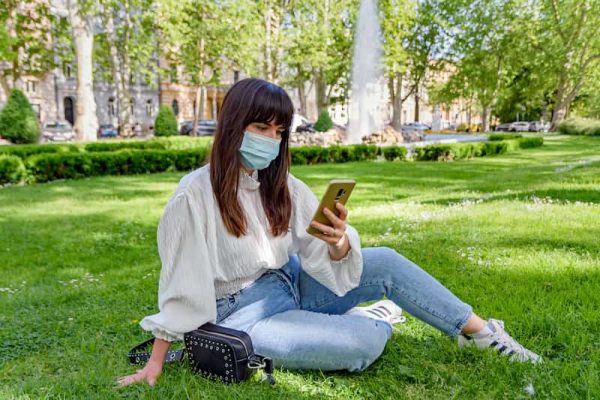
Are You Starting Uni During The Pandemic?
As the summer season comes to an end, students across the UK may be looking towards term time with trepidation. Starting a university course or returning to studies after a break has always had the potential to be nerve-wracking, but this year is different. For the last few months, we’ve experienced an unprecedented modern pandemic in the form of COVID-19. Schools and universities have been closed for the bulk of 2020 in a measure to curb the spread of the virus. Now, as lockdown rules change to reflect the latest health advice, it seems that schools and universities across the UK will start admitting students again.
Universities are implementing a wide variety of measures to help mitigate the spread of the virus in the student population. Many courses will now be taught primarily via online lectures [1], with the student body being divided into “protective bubbles’ who live and study together [2]. Of course, the standard anxieties and health concerns surrounding fresher’s week haven’t disappeared or been replaced by COVID-19, so you’ll have to contend with all those worries as well!
All this may have you wondering: how can I keep my well being in check during term time?
Take The Proper Precautions
The current pandemic gives a whole new meaning to the phrase ‘Fresher’s Flu’. Most students will experience some form of illness in their first few months of university, typically relegated to a case of the sniffles. This in combination with stress and killer hangovers can put a serious strain on your body if you’re not actively taking care of yourself. Now a sore throat, cough or flu can indicate something much more insidious: COVID-19.

Though the university will have measures in place to curb the spread of the virus, every student has a personal responsibility to follow proper hygiene, not just for their own sake but for the safety of others. That means:
• Wearing a mask properly whenever necessary.
• Following the 5 steps to hand washing.
• Keeping a social distance of at least 1 metre from people you don’t live with.
• Isolating if you or someone you live with is exhibiting COVID symptoms.
Personal protective equipment (PPE) such as masks, gloves and hand sanitisers are now widely recognised as effective ways to reduce the spread of the virus [3], so use them!
Don’t Forget This Form Of Protection…
While we’re focused on wearing PPE to help fight COVID, we shouldn’t forget another important form of protective equipment…that’s right, condoms!
Although sexual health may not be at the forefront of public discussion right now, and taking into account the fact that social groups will be isolated from one another on campus, we still can’t ignore the concerning STI (Sexually Transmitted Infection) statistics among the student population. A shocking 25% of students will catch an STI during their first year [4].
A lot of these STIs may not have initial symptoms, such as Gonorrhoea or Chlamydia (known as the silent STI). However, over time these infections can cause serious health issues such as infertility and painful periods in women, and painful urination and testicle swelling in men. Many young people keep their STIs secret out of embarrassment, or simply because they don’t know they have one.
The best way to avoid catching or transmitting an STI is to practice safe sex with a condom, as well as getting an STI test to check whether you’re in the clear or need to take a course of treatment. You may feel embarrassed or awkward, but it’s an incredibly common health issue among the student population, and feeling uncomfortable while sitting in a clinic is a much better alternative to carrying a harmful infection that can endanger your sexual partners.

What About Meningitis?
Meningitis is an infection of the protective membranes around the brain and spine, and students are one of the demographics most at risk from it [5]. Meningitis spreads in a similar way to other infections, such as the cold, flu or COVID-19, through coughing, sneezing, kissing and sharing utensils. All very common things during the first few weeks of uni! The twist with Meningitis is that many people carry the bacteria or virus that can cause the infection, but aren’t sick themselves. Actually getting infected is uncommon – but the health risks, particularly from bacterial meningitis, can be very serious and sometimes fatal. It is not an illness to be taken lightly, which is why it’s so important to be informed about it.
Symptoms of meningitis can include:
• Sudden high fever
• Stiff neck
• Painful, persistent headache with nausea
• Sensitivity to light
• Sleepiness and fatigue
• Skin rash or spots
If you notice any of these symptoms, seek medical help immediately. The earlier you receive treatment for meningitis, the better the outcome. Make sure you’re paying attention to your flatmate’s health, too.
It’s highly recommended that freshers receive the MenACWY vaccine, which protects from meningitis and septicemia [6].
Mental Health Matters
Last but not least, let’s remember that mental health is just as important as physical health. Mental health is a serious concern amongst the student aged population [7]. Many mental health conditions can start presenting as a young adult, precipitated by factors such as academic pressure and stress, moving away from home, social anxiety caused by constant interactions with new people, sensory overload from busy campus life, as well as the complicated navigation of relationships and sexual encounters. University can be a big step in your life, so it’s no wonder that for many people it can cause an overwhelming emotional response.
You’re not alone, though. Many of your fellow students will be experiencing similar feelings, and there are mental health professionals and therapists available to help. Make sure that you aren’t suffering in silence – share your thoughts and feelings and make sure to check in on others as well. In addition to support structures, you can also affect your own well being through practices such as:
• A consistent sleep schedule
• Frequent exercise
• Responsible drinking
• Mindfulness and meditation
• Journaling your thoughts and feelings
• Avoiding anxiety-inducing social media
Sources
1. Coronavirus: Should I Go To University This Year? | BBC News
2. Coronavirus: Students Might Have To Stay In ‘Protective Bubble’ | BBC News
3. Physical Distancing, Face Masks, And Eye Protection To Prevent Person-To-Person Transmission Of … COVID-19 | PubMed
4. Students And Sexual Health | Fresh Student Living
5. Meningitis In Students | UCAS
6. MENACWY Vaccine | NHS
7. Prevalence Of Mental Health Issues Within the Student Aged Population | Education Policy Institute
Further Reading
1. Visiting An STI Clinic | NHS
2. What Do You Want To Know About Meningitis? | healthline
3. Coronavirus (Covid-19) | GOV.UK







